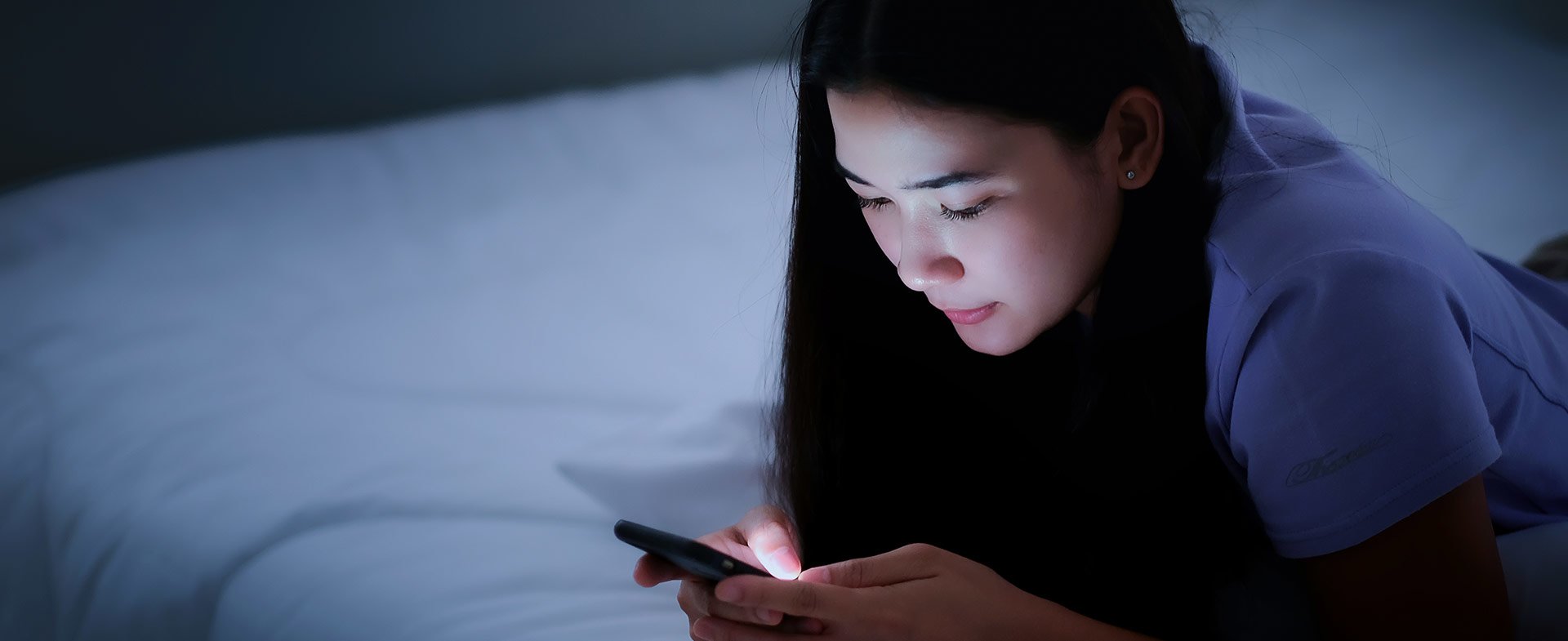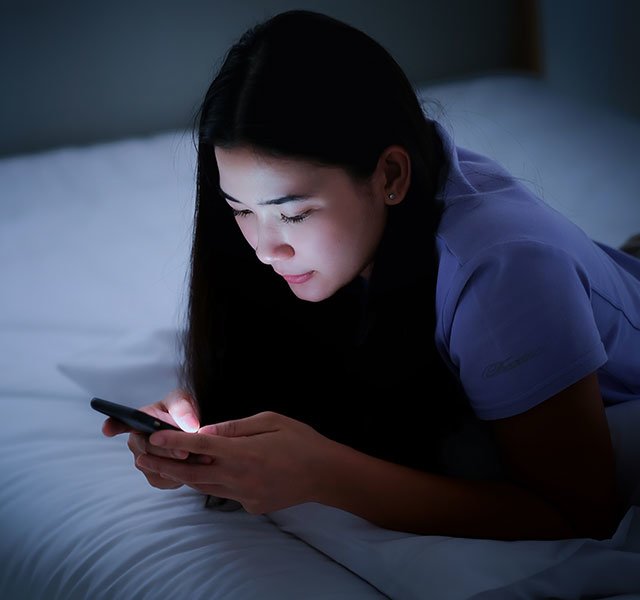Blue light has received a lot of attention in recent years, mostly because of its potential to affect our vision and our ability to sleep soundly. Plus, during the COVID-19 pandemic, many of us have been glued to our computers and devices as we navigate remote work and school. The end result: Greater blue light exposure.
"Blue light is part of the visible spectrum of light," says Henry W. Lim, M.D., a dermatologist at Henry Ford Health. "It's a high-energy, short-wavelength light that's produced not only by the sun, but also by our computer screens, cell phones and other devices."
Frequently Asked Questions About Blue Light
Blue light is as old as the sun, yet it's shrouded in mystery. Most of us aren't clear what it is, what it does and how (or if) it impacts our health and well-being. Here, Dr. Lim answers frequently asked questions about this unique source of healing and damaging light.
Q: What is blue light?
Dr. Lim: There are three main types of blue light:
- Blue light from the sun: Blue light is part of visible light. When combined with other wavelengths, that can impact how it affects our skin.
- Therapeutic blue light: Blue light can be isolated and, in combination with medications, can be used as a treatment for inflammatory conditions like acne and some skin cancers.
- Blue light from devices: Devices, such as iPads, computers, laptops and smartphones, emit blue light.
Q: How does blue light affect the skin?
Dr. Lim: Blue light contributes to brown spots and hyperpigmentation in darker-skinned individuals, particularly when it's combined with ultraviolet rays from the sun. There's also evidence to suggest that blue light may contribute to photoaging of the skin and a breakdown of collagen just like UVA and UVB rays. But when it's isolated, blue light can reduce inflammation in skin conditions such as acne. There's even evidence to suggest that blue light may be helpful in wound healing.
Q: What can people do to protect against blue light?
Dr. Lim: Unfortunately, aside from physical barriers like clothing, right now we don't have great ways to protect against visible light. All sunscreens protect against the UVA and UVB rays from the sun, but not blue light. Physical sunscreens with titanium dioxide and zinc oxide also do not protect against blue light. The only type of sunscreens that do so is tinted (colored) sunscreens.
Building A Blue Light Barrier
With growing reliance on devices, our exposure to blue light will continue to increase. The reassuring news: You don't need to worry too much about the effects of blue light produced from devices on your skin.
"Blue light from devices is 100 to 1,000 times less intense than blue light from the sun," Dr. Lim says. "The evidence to date does not show any adverse effects of blue light from devices on the skin."
While scientists work out how to develop sunscreens that protect against blue light, it's important to do your part, too. A few strategies:
- Minimize blue light from devices: Go hands-free when you're using your phone (so it's not against your face). Lower the light setting on your screen to 50% or choose the "night shift" setting to help prevent potential skin damage.
- Wear blue light-blocking sunscreens: Wear tinted sunscreens that contain iron oxide.
- Take oral antioxidants: Some evidence suggests that taking certain antioxidants, such as Polypodium leucotomos, an extract of fern plants, offers protection against visible light, including blue light.
Visible light from the sun is essential to life. Among its many functions, it provides illumination during the day. In addition, visible light, including blue light plays a key role in regulating your body's circadian rhythm and maintaining a natural sleep-wake cycle. Should you have questions, consult your healthcare provider.
To find a doctor or dermatologist at Henry Ford, visit henryford.com or call 1-800-HENRYFORD (436-7936).
Dr. Henry Lim is a dermatologist who sees patients at Henry Ford Cancer - Detroit and Henry Ford Medical Center - New Center One.



